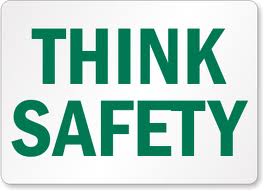
By Matthew A. Daecher
When I discuss accident investigation and the ensuing results with companies or managers, I sometimes hear, “Well, my driver wasn’t cited, so it wasn’t preventable.” Those who have been involved in any serious claim or litigation and held accountable to some extent even though their driver did not receive a citation will certainly chuckle at this statement, as I do.
Indeed, there is a big difference between criminal and liable. A citation handed out to a driver judged to have violated a documented law holds him accountable for his actions. Liability deals more with perceived contribution to an occurrence as opposed to violating a law. The difference between criminal and civil law is criminal focuses on violations of a specific set of rules, while civil law deals largely with everything outside of the judgment of those responsible for enforcing those rules.
Liability is a term that likely means more to some than others, though it should be important to you regardless of your specific situation because you, the carrier, ultimately pays for those liabilities you have incurred.
In a traditional insurance arrangement that is typical of most companies when an incident occurs, once an operator submits a claim the assumption is it becomes the insurance company’s problem. From that point, the insurance company settles the claim and ultimately, based upon the liability and resulting cost of a carrier’s claims, determines what they expect the carrier’s future losses to be, and adjusts the insurance premium accordingly. (Note: While other market factors can influence insurance costs, premiums typically reflect prior losses and other operational factors.)
In non-traditional or alternative risk insurance arrangements the liability aspect is usually more transparent to carriers. They have a more vested interest in the outcome of claims submitted given the potential to actually earn back some of their premium.
Since increased liability leads to increased claim costs and ultimately a higher cost of doing business, it makes sense that controlling liability is important to controlling costs in the long run.
So, what operational concept is inversely proportionate to liability? Safety programs and processes of course.
A comprehensive and well-executed safety management program will limit a carrier’s liability to the extent possible in any given situation. Many operators learn this the hard way as they grow the company, though small operators who understand the concept can get ahead of the game and ultimately reach a level of sophistication that comes with growth and experience.
Experience tells me the larger a carrier becomes, the bigger the chance to be bitten by the liability bug and suffer its related costs, and most likely to adopt a more robust safety program.
Here are the top liability producers that every operator should address and control.
Subjective hiring — Make sure there is a method in hiring. Establish guidelines for the skills and behaviors a candidate must bring to the job in your company and make them stick.
Lack of or inconsistent oversight — Review all employee errors, violations of company policies, regulations or laws and unsafe driving behavior on a regular basis to determine if anyone poses unnecessary or unusual risk compared with other employees.
Absence of accountability — When an employee missteps the company should inform the employee of the error and take some type of corrective action, whether counseling, training, etc. A framework for disciplinary action is generally included in an accountability system to deter similar behavior in the future.
Insufficient documentation — Without documentation to prove that you routinely conduct liability-reducing measures, you will have a hard time convincing anyone interested that this is a standard practice you actually completed as scheduled. BR
Matthew A. Daecher is president and CEO of Daecher Consulting Group, Inc., Camp Hills, PA.
